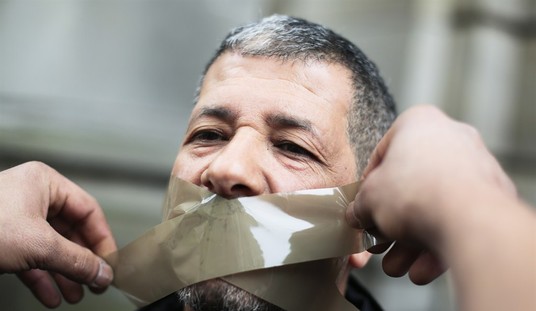Standing on the roof of Afghan Uniformed Police Outpost Mamanzi, 1st Lt. William McPherson asked the outpost commander where insurgents in the area lived.
Kneeling behind a mounted Soviet machinegun, the AUP policeman smiled and opened his arms wide, motioning with both hands to the other side of the Helmand River.
The policeman pointed to a small, abandoned compound across the river and told McPherson they have received fire from there in the past. McPherson, who is a member of the U.S. Marine-led Kajaki Police Advisor Team, asked if they had been fired upon from any other locations.
The policeman shook his head and admitted besides the sporadic fire from the compound, the area had been quiet and many of the locals were enjoying the peace. The attitude of the policeman was lighthearted, but as the two men sat down to drink a cup of tea, he reminded McPherson that insurgents are still a threat to the security in Kajaki.
As the policeman talked with McPherson about the upcoming fighting season, he looked in the distance towards the river and said, “I cannot read and I cannot write, but I can fight. And soon the [insurgents] will know it.”
Transition in Kajaki
Like many of the outposts in Kajaki District, Mamanzi sits wedged between Route 611 and the Green Zone, a stretch of fertile, cultivated ground along the Helmand River Valley. For years, the Green Zone provided refuge for insurgents who mounted daily attacks against coalition troops; however, the landscape of the area has drastically changed.
During the past year, Afghan National Security Forces have established a permanent footprint in the region. The Afghan National Army, Afghan Uniformed Police and Afghan Local Police have built numerous outposts and bases inside and along the Green Zone. These posts have provided increased security for the local community.
Each day, the security forces patrol through local bazaars and farmlands, establish vehicle checkpoints along the roads and routinely hold security shuras, or meetings, with village elders to discuss security concerns.
The increased stability within the district is unmistakable and has provided the Government of the Islamic Republic of Afghanistan (GIRoA) with the opportunity to complete state-building measures by improving local infrastructure. The Afghan government is currently working on a road improvement project along Route 611, which will pave the road from Sangin to the Kajaki Dam. According to Haji Faizullah, the Deputy Chief of Police for Kajaki, the road represents a new age in Afghanistan.
“This road represents a new stage of our lives in this part of Helmand province,” said Faizullah. “Two years ago, you couldn’t even travel this road for fear of being killed. Now people can go from their homes, to the bazaar, and back again without any worries.”
Coalition Forces in Kajaki
Recent successes in Kajaki have allowed coalition forces to transition from a comprehensive counterinsurgency strategy to an increased focus on security force assistance.
With less than two years until coalition forces are scheduled to withdraw from Afghanistan, advisor teams remain fully engaged with their ANSF counterparts to ensure the security transition out of Afghanistan goes smoothly.
“The ANSF know how to fight. There is no question about that,” said Marine Brig. Gen. George W. Smith, Jr., Deputy Commander, Security Force Assistance, Regional Command (Southwest). “The role of our advisor teams now is to train the trainers and help the Afghans develop those capabilities and functional systems they need to sustain long term success.”
The U.S. Marine-led Kajaki Police Advisor Team is one of two Marine advisor units serving within the district. The mission of the advisor team is mainly to develop the Afghan’s law enforcement capabilities by training and mentoring the local Afghan Uniformed Police.
With the local judicial system taking root and the recent transition of security at the Lashkar Gah detention facility, it is vital for the police to learn basic skills including crime scene investigation and evidence collection.
“The process of evidence collection leads to the actual detention and conviction of criminals in court,” said Buck McCluskey, a law enforcement professional with the Kajaki PAT team. “The Afghans must continue to build their investigative capabilities for long term success within the criminal justice system.”
Although the PAT interacts with the policemen daily, they do not supervise or direct the actions of the AUP. They only observe police activities and mentor the leaders within the organization. The PAT also supports the unit by identifying organizational shortfalls and developing a detailed curriculum to improve the competency, knowledge, skills and abilities of each police officer.

Recently, the advisors recognized the AUP didn’t have their own organic capability to reduce improvised explosive devices (IEDs), so the PAT developed an Explosive Hazards Reduction Course to teach the Afghans how to detect and remove IEDs. Already 17 policemen completed the two-week course.
According to Maj. Burke Eltringham, officer in charge of the PAT, the aim of his team is to teach the police the skills they will need to sustain themselves once coalition forces leave.
“The Afghans have already assumed lead security responsibility within the region,” said Eltringham. “As we move forward with advisors and coalition forces stepping into the background, any type of sustainable professional policing capacity is all the more important. By continuing to teach them, we are ensuring a secure future for the people in Afghanistan.”








Join the conversation as a VIP Member